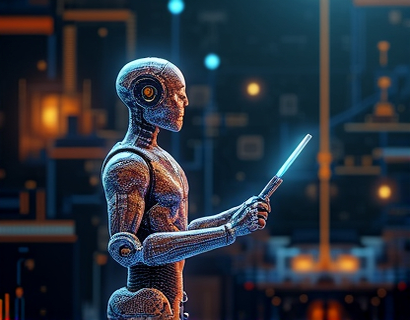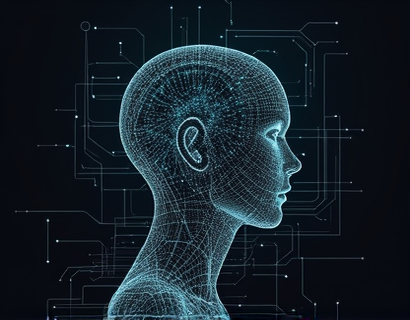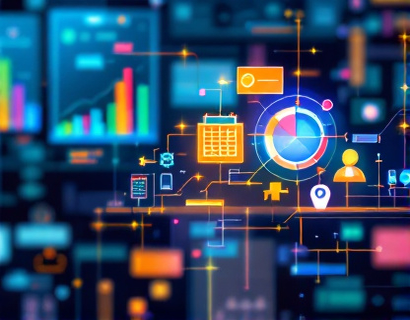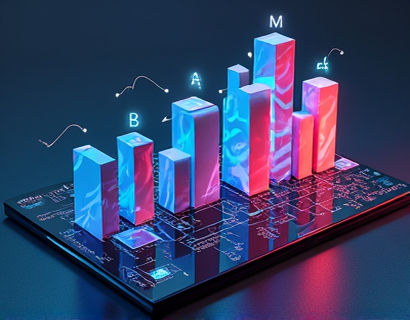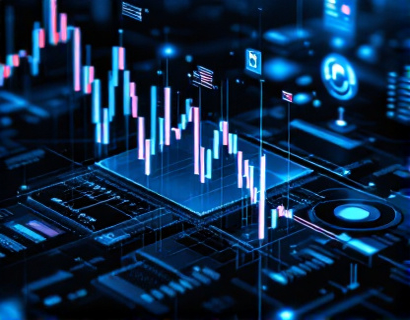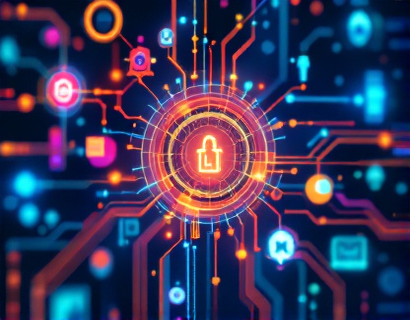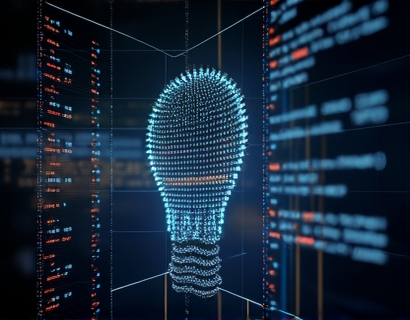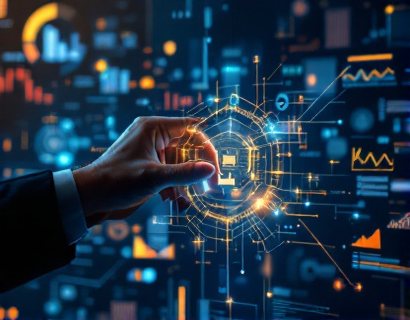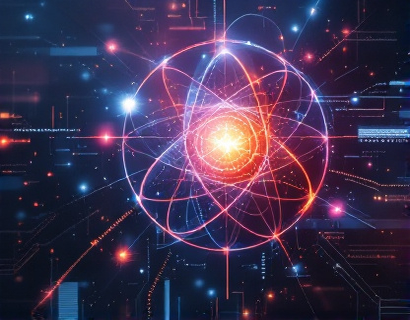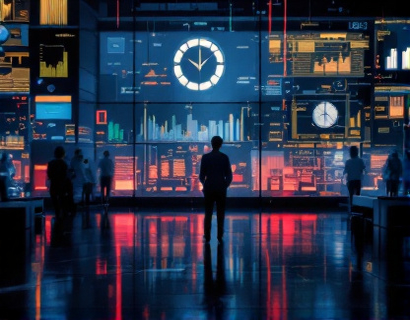Unlocking Next-Gen Digital Transformation: Harnessing AI and Blockchain for Innovative Solutions
The digital landscape is undergoing a profound transformation, driven by the convergence of artificial intelligence (AI) and blockchain technology. This synergy is not just a trend but a fundamental shift that promises to redefine how businesses operate, innovate, and deliver value. By merging the power of cryptocurrency and machine learning, organizations can unlock new levels of efficiency, security, and innovation, gaining a competitive edge in an increasingly digital world.
At the heart of this transformation is the integration of AI and blockchain, two technologies that, when combined, create a powerful ecosystem capable of addressing complex challenges. AI, with its ability to process vast amounts of data and learn from patterns, enhances decision-making and automation. Blockchain, with its decentralized and immutable ledger, ensures transparency, security, and trust. Together, they form a robust framework for next-generation digital solutions.
Enhancing Efficiency Through AI and Blockchain
One of the most significant benefits of combining AI and blockchain is the enhancement of operational efficiency. AI can automate routine tasks, reducing the need for manual intervention and minimizing errors. For instance, in supply chain management, AI algorithms can predict demand, optimize inventory levels, and streamline logistics. When these processes are recorded on a blockchain, the data becomes tamper-proof and transparent, ensuring that all stakeholders have real-time access to accurate information.
Moreover, smart contracts on the blockchain can automate and enforce contractual obligations without the need for intermediaries. This not only speeds up processes but also reduces costs associated with manual verification and execution. For example, in the financial sector, smart contracts can facilitate cross-border payments, reducing transaction times from days to minutes and lowering fees.
Boosting Security with Blockchain and AI
Security is a paramount concern in the digital age, and the combination of AI and blockchain offers robust solutions. Blockchain's inherent security features, such as cryptographic hashing and decentralized consensus, make it resistant to tampering and cyber attacks. AI, on the other hand, can detect and respond to threats in real-time, enhancing the overall security posture.
AI-powered security systems can analyze vast amounts of data to identify patterns and anomalies that may indicate a security breach. These systems can proactively alert organizations to potential threats and automate responses to mitigate risks. For instance, in cybersecurity, AI can monitor network traffic, identify suspicious activities, and trigger countermeasures to prevent attacks.
Furthermore, the immutable nature of blockchain ensures that once data is recorded, it cannot be altered without detection. This provides an additional layer of security for sensitive information, such as personal data and financial transactions. The combination of AI and blockchain thus creates a formidable defense against cyber threats, protecting both organizations and individuals.
Driving Innovation with AI and Blockchain
The synergy of AI and blockchain is not only about efficiency and security; it is also a catalyst for innovation. By leveraging these technologies, businesses can develop novel products and services that were previously unimaginable. For example, in the healthcare sector, AI can analyze medical data to identify trends and predict patient outcomes, while blockchain can secure and share this data across different healthcare providers, ensuring privacy and interoperability.
In the realm of finance, decentralized finance (DeFi) platforms use blockchain to offer financial services without traditional intermediaries, and AI can enhance these platforms by providing sophisticated trading algorithms and risk management tools. This combination opens up new possibilities for financial inclusion, enabling access to financial services for underserved populations.
Additionally, the creative industry can benefit from AI-generated content and blockchain-based digital rights management. AI can create music, art, and literature, while blockchain ensures that creators are fairly compensated and their work is protected from unauthorized use. This synergy fosters a more dynamic and equitable creative ecosystem.
Building Trust Through Transparency
Trust is a critical component of any business interaction, and the combination of AI and blockchain addresses this by promoting transparency. Blockchain's decentralized ledger provides a verifiable and transparent record of transactions, which can be audited by any participant. This transparency builds trust among stakeholders, whether they are customers, partners, or investors.
AI can further enhance this trust by providing clear and explainable insights. For instance, AI can generate detailed reports on how decisions are made, ensuring that the reasoning behind these decisions is transparent and understandable. This is particularly important in regulated industries where compliance and accountability are paramount.
Moreover, the use of blockchain for identity verification and management can simplify and secure the process of establishing trust. Digital identities stored on a blockchain can be verified and shared securely, reducing the risk of identity theft and fraud. AI can assist in managing and authenticating these identities, ensuring a seamless and secure user experience.
Challenges and Considerations
While the potential of AI and blockchain is vast, there are challenges that organizations must navigate. One of the primary concerns is the technical complexity of integrating these technologies. Both AI and blockchain require specialized knowledge and expertise, which can be a barrier for some businesses. However, as the ecosystem matures, more user-friendly tools and platforms will emerge, making it easier for organizations to adopt these technologies.
Another consideration is the regulatory landscape. As AI and blockchain are relatively new, regulations are still evolving. Organizations must stay informed about local and international regulations to ensure compliance. Collaboration with regulatory bodies and industry groups can help shape policies that support innovation while protecting consumers.
Scalability is also a key factor. While blockchain technology has made significant strides, scaling to handle large volumes of transactions remains a challenge. Similarly, AI models require substantial computational resources, which can be costly. However, ongoing research and development are addressing these issues, and solutions are becoming more viable by the day.
Case Studies and Real-World Applications
Several organizations are already reaping the benefits of AI and blockchain. For instance, a leading logistics company implemented a blockchain-based system to track shipments, combined with AI for predictive maintenance of equipment. This not only improved transparency and traceability but also reduced downtime and maintenance costs.
In the energy sector, a utility company used blockchain to create a peer-to-peer energy trading platform, allowing consumers to buy and sell excess renewable energy directly. AI algorithms optimized the matching of supply and demand, ensuring efficient use of resources and reducing waste.
A financial institution integrated AI-driven fraud detection with a blockchain-based transaction ledger to enhance security and compliance. This combination significantly reduced fraudulent activities and streamlined regulatory reporting.
Future Outlook
The future of digital transformation is bright, with AI and blockchain continuing to evolve and converge. As these technologies mature, we can expect even more innovative applications across various industries. The integration of AI and blockchain with other emerging technologies, such as the Internet of Things (IoT) and 5G, will further amplify their impact.
Organizations that embrace this transformation early on will be better positioned to capitalize on the opportunities presented by the digital revolution. By harnessing the power of AI and blockchain, businesses can not only improve their operations but also drive meaningful change in society.
In conclusion, the combination of AI and blockchain is not just a technological advancement but a transformative force that can reshape the digital landscape. By understanding and leveraging this synergy, organizations can unlock new possibilities, enhance efficiency, ensure security, and foster innovation, ultimately achieving a competitive edge in the ever-evolving digital world.








